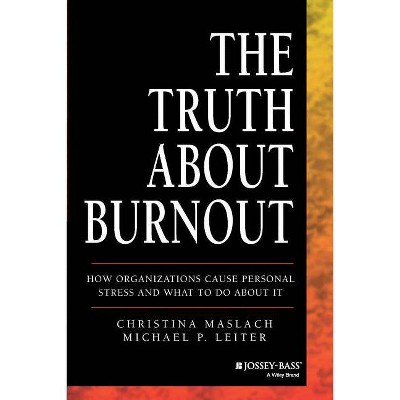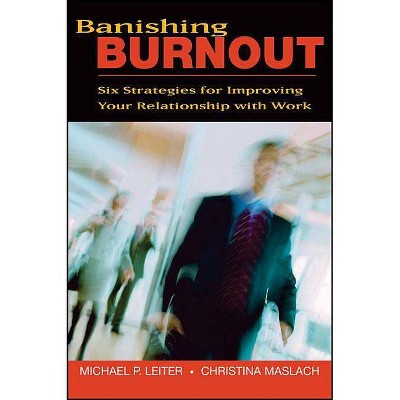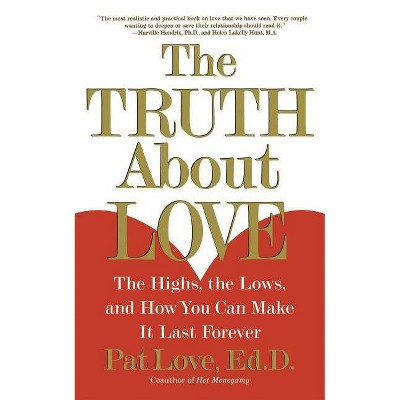The Truth about Burnout - by Christina Maslach & Michael P Leiter (Paperback)

Similar Products
Products of same category from the store
AllProduct info
<p/><br></br><p><b> Book Synopsis </b></p></br></br>Today's workforce is experiencing job burnout in epidemic proportions. Workers at all levels, both white- and blue-collar, feel stressed out, insecure, misunderstood, undervalued, and alienated at their workplace. This original and important book debunks the common myth that when workers suffer job burnout they are solely responsible for their fatigue, anger, and <i>don't give a damn</i> attitude. The book clearly shows where the accountability often belongs. . . .squarely on the shoulders of the organization.<p/><br></br><p><b> From the Back Cover </b></p></br></br>Today's workforce is experiencing job burnout in epidemic proportions. Workers at all levels, both white- and blue-collar, feel stressed out, insecure, misunderstood, undervalued, and alienated at their workplace. But what can be done to offset the devastating effects of organizational downsizing, outsourcing, and restructuring? <p>This original and important book debunks the common myth that when workers suffer job burnout they are solely responsible for their fatigue, anger, and "don't give a damn" attitude. <i>The Truth About Burnout</i> clearly shows where the accountability often belongs . . . squarely on the shoulders of the organization. Burnout is shown to be a sign of a major dysfunction within an organization, and says more about the workplace than it does about the employees.</p> <p>Written by Drs. Christina Maslach and Michael Leiter leaders in the study of job burnout <i>The Truth About Burnout</i> challenges the accepted thinking about burnout and focuses on how to describe, predict, and alleviate this problem. The authors give workers, managers, and company leaders guidelines and strategies for eradicating the underlying problems within an organization that are the true source of burnout. They propose a new paradigm for organizational health and offer specific prescriptive measures. These measures--both for assessment, goal-setting, and techniques of crisis intervention, and for preventing burnout in the future--demand both collective initiative from employees and substantial cooperation from management.</p> <p>The organizational change that is required will not only alleviate this problem--it also offers management the promise of greater profitability. For it is only engaged and committed employees who can remain functional and productive for the long run.</p><p/><br></br><p><b> About the Author </b></p></br></br><b>CHRISTINA MASLACH</b> is professor of psychology at the University of California, Berkeley. She is the creator of the widely used psychological test instrument The Maslach Burnout Inventory and the author of <i>Burnout: The Cost of Caring</i> (1982). <p><b>MICHAEL P. LEITER</b> is dean of the faculty of pure and applied science and professor of psychology at Acadia University, Nova Scotia, Canada. He is also director of the Centre for Organizational Research & Development.</p>
Price History
Cheapest price in the interval: 21.99 on May 23, 2021
Most expensive price in the interval: 21.99 on November 8, 2021
Price Archive shows prices from various stores, lets you see history and find the cheapest. There is no actual sale on the website. For all support, inquiry and suggestion messagescommunication@pricearchive.us




















